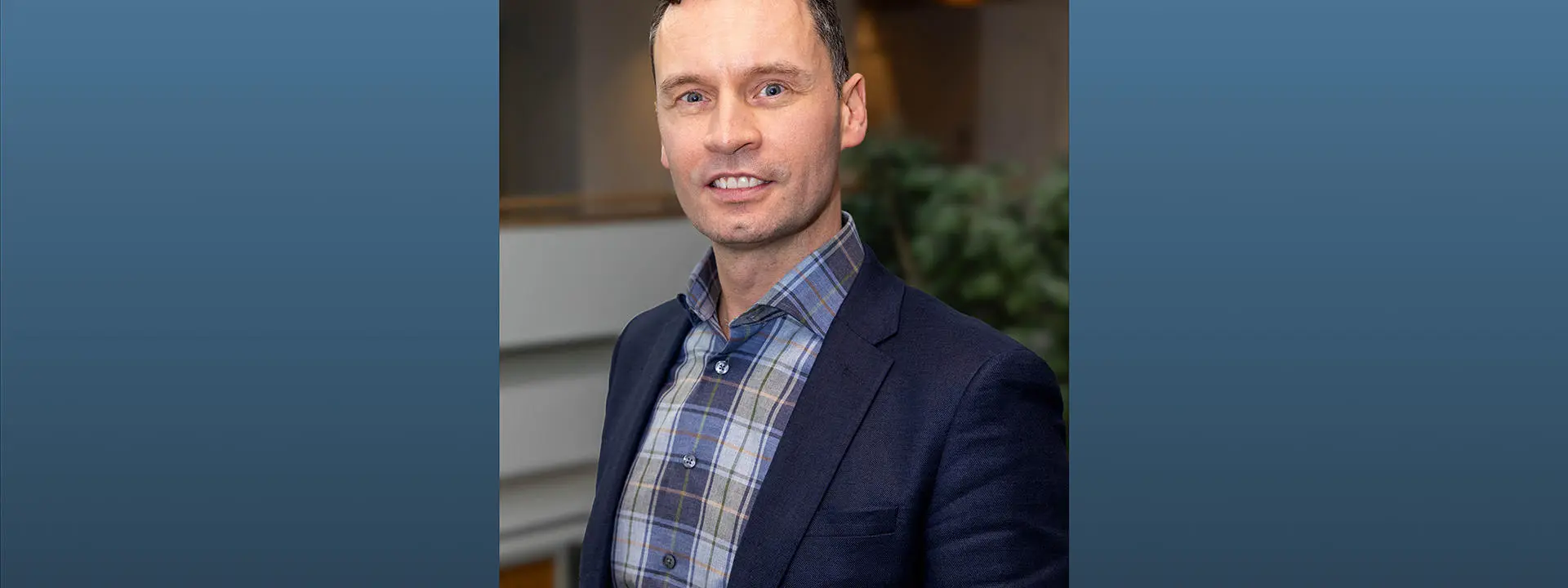Healthy ageing is an opportunity, we should stop framing it as a problem

By Professor Alan Gow, co-academic lead for healthy ageing in Heriot-Watt University’s Global Research Institute in Health and Care Technologies
Our new Global Research Institute in Health and Care Technologies is designed to address several pressing global issues, one of which is healthy ageing.
Our activities span engineering and the physical sciences, robotics and AI to textiles and design, and the social and behavioural sciences. We are using robots to help rehabilitation after stroke or triage emergency support in care homes, developing innovative biosensors for earlier diagnoses in diseases relevant to ageing, and researching how our urban environments can be designed to support activity and reduce isolation.
One problem we face is the way discussions around growing old are often portrayed as a focus on decline. That’s not to say ageing doesn’t bring challenges but we need to consider the fuller experience of what it can mean to age well.
That’s why I wrote a piece for The Times’ popular Thunderer column, an opportunity for a targeted opinion piece to a national audience in one of the UK’s leading broadsheets.
Here’s what I wrote…
We often hear “Age is just a number!”. While intended to put a positive spin on it, the phrase leans into the ageist connotation of not acknowledging getting older. Age isn’t just a number, and it’s not something to shy away from.
People living longer encourages societies to think differently about what it means to be older. Rather than seeing that as a “problem”, we must see it as a precious opportunity. Imagine being able to live a healthy, active life for 25 or more years after retiring. Some people already do, but not all...
The real challenge is not that we age, but that we don’t all have an equal chance of ageing well.
Each of us can influence how we age. Choose a healthy lifestyle and you increase your chances of being healthier for longer. Just because lifestyles are within our “control”, that’s not to say that everyone has the same opportunities to change things. It’s the job of academics, health and social care, third sector and industry to find solutions to the challenges we might face as we age, with older people at the heart of everything we do.
Here at Heriot-Watt University our new Global Research Institute in Health and Care Technologies has more than 60 academics focussed on ageing, including those working in robotics and AI, but technology isn’t the fix for the bigger issue. The way we talk about ageing and older people is so important.
The FrameWorks Institute's Aging, Agency and Attribution of Responsibility study in 2017 found that using negative metaphors and framing ageing as a societal burden increased fatalistic attitudes about it being an inevitable decline. Research from Yale University showed that people who held more positive self-perceptions of ageing lived 7.5 years longer on average than those with negative perceptions.
I’d encourage you to look into the work being done by Age Without Limits. They have a sobering statement on their landing page - “Ageism is the most widespread form of discrimination: anyone can experience it.” If we want an equitable, inclusive society we can’t allow this kind of thinking to continue. Ageing is, after all, a global challenge…sorry, global opportunity!
... boys born in the UK in 2020 can expect to live to 87.3 years on average and girls to 90.2 years. Those aren’t just numbers; they are opportunities not just for extra years of life but of extra life in those years.
‘Healthy ageing’ is not simply about being in good health – it’s about being able to continue to do the things we value, sometimes in the context of living with a specific disease or impairment.
We need to promote physical and emotional well-being as we age. Too many beliefs and social norms still maintain negative ideas about ageing.
According to the Office for National Statistics, boys born in the UK in 2020 can expect to live to 87.3 years on average and girls to 90.2 years. Those aren’t just numbers; they are opportunities not just for extra years of life but of extra life in those years.